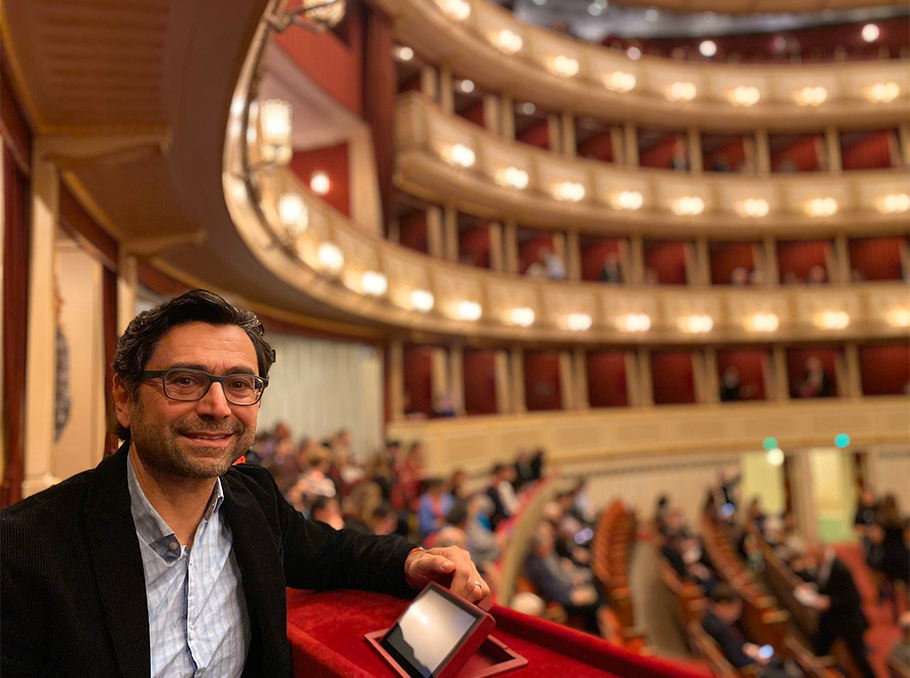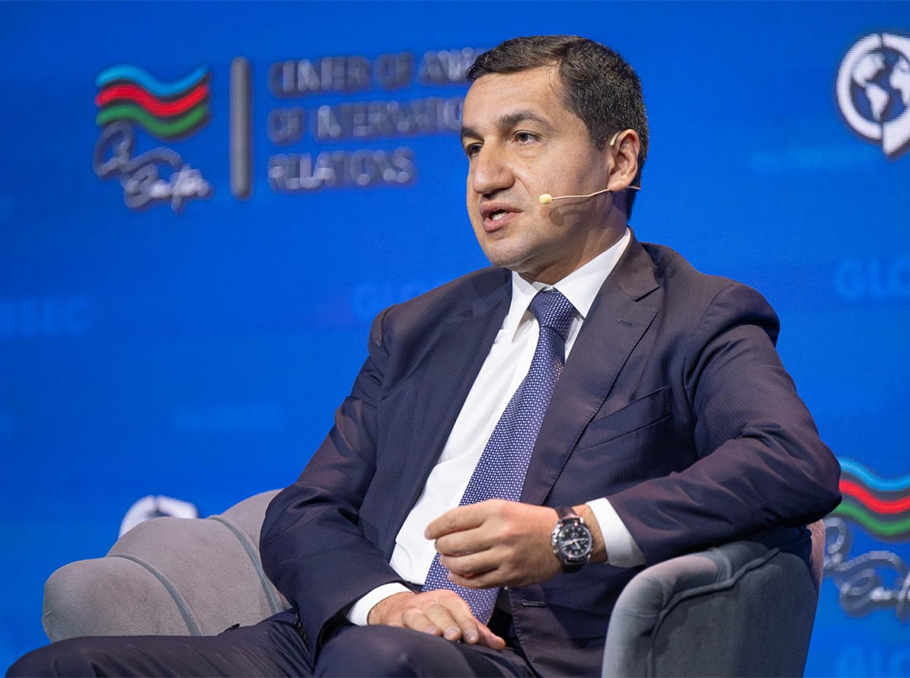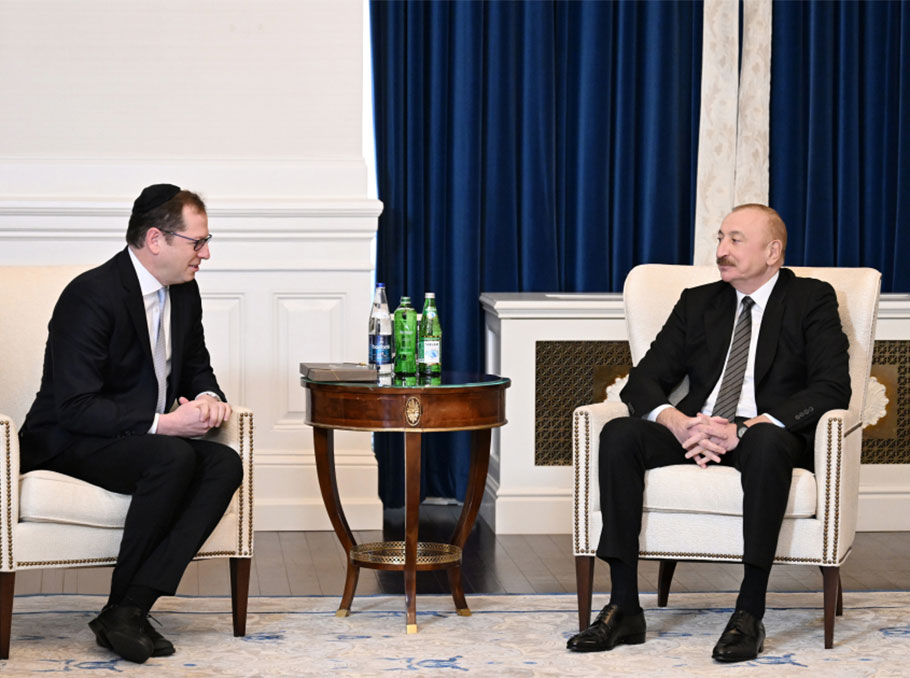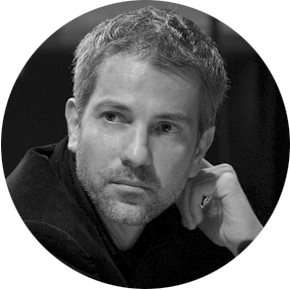2021 Nobel Prize Winner in Physiology/Medicine, Molecular Biologist and Neurologist Ardem Patapoutian was born and grew up in Beirut, attended an Armenian school and played basketball with friends.
Before the Nobel Prize, Ardem Patapoutian received other valuable prizes as well. In 2020, together with David Julius, the scientist of Armenian decent was awarded the Cowley Prize, and in 2021 October the BBVA Foundation Frontiers of Knowledge Award in Biology and Biomedicine.
Speaking to Mediamax, Ardem Patapoutyan’s childhood friend, writer and journalist Vicken Cheterian told about their school years, the difficult youth in Beirut during the war and the friendship that continues to this day.
Life in western Beirut and the years of war
We first met with Ardem when we were three years old - in kindergarten. Since then, he has been my friend, we grew up together, we also spent our teenage years together. First, we studied at the Demirchyan College in Beirut, then at the Hovakimyan College, we attended the same sports club.
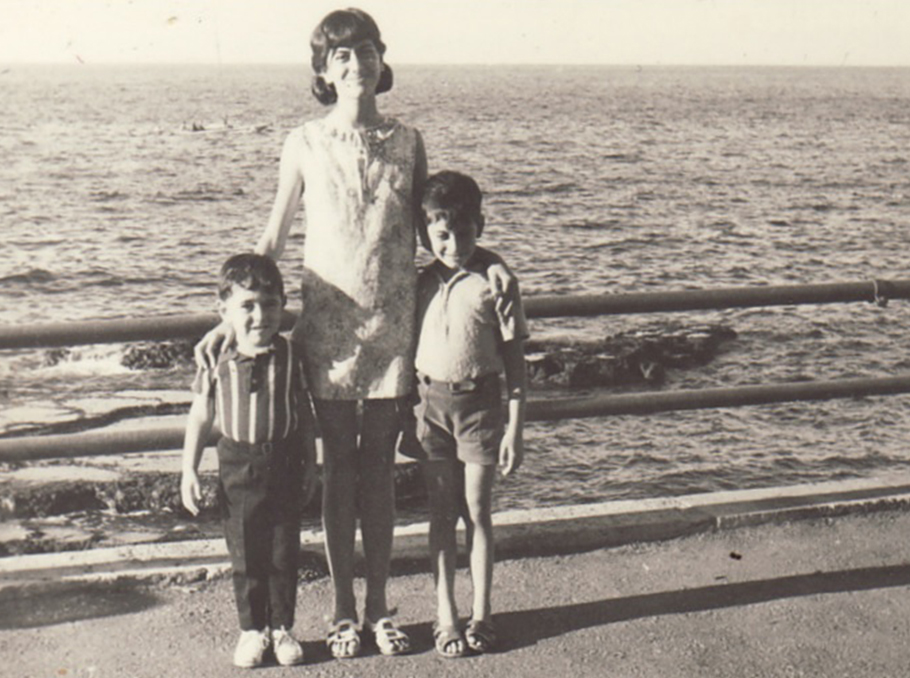 4-year old Ardem Patapoutian with brother and sister
4-year old Ardem Patapoutian with brother and sister Photo: from Ardem Patapoutian’s archive
“I was born in Beirut, Lebanon, where my mom was an elementary school teacher and principal and my dad was a writer and accountant. The youngest of three kids, I was eight years old when the Lebanese Civil War began. Life was often understandably stressful, with curfews, limited hours of electricity, and the not infrequent explosion. As Armenians, we were usually treated as quasi-neutral parties to the Christian-Muslim strife, and I attended small Armenian schools which continued shrinking in class size as more families escaped the war. By my freshman high school year, we were down to five students, all dear pals, where I was perhaps middle of the pack in my subjects but definitely the shortest in stature. The school closed the next year, and I moved to a multicultural and academically rigorous private high school where I initially flailed but eventually found a knack for math and science classes, a classic late bloomer,” Ardem told in his article for The Kavli Prize.
Ardem’s family initially lived in another part of Beirut, but after a while they moved closer to our house. This area was very close to the green line that divided Beirut into two parts. Our houses were in 20-minute distance.
There was a district where the street was covered with big rags so that snipers from the other district would not target passers-by. Sometimes, people do not understand the everyday difficulties of growing up in war cities, and I tell all this so that you can imagine the conditions in which we grew up. Those were difficult years.
We lived in western Beirut, where most of the population was Muslim. The Armenians there were in a ghetto reality, our whole life was Armenian and in some way cut off from the external environment. Ardem’s family was engaged in community educational and cultural activities.
Basketball team and the only university year in Beirut
Outside of school, we spent all our time in a sports club playing basketball. We trained three times a week, and on other days we just went to play and spend time together. During the war, that center, which was in a huge building, saved us, became oxygen, because we could not go out a few square kilometers. Even in those few square kilometers there were many dangers, and the center had become everything to us.
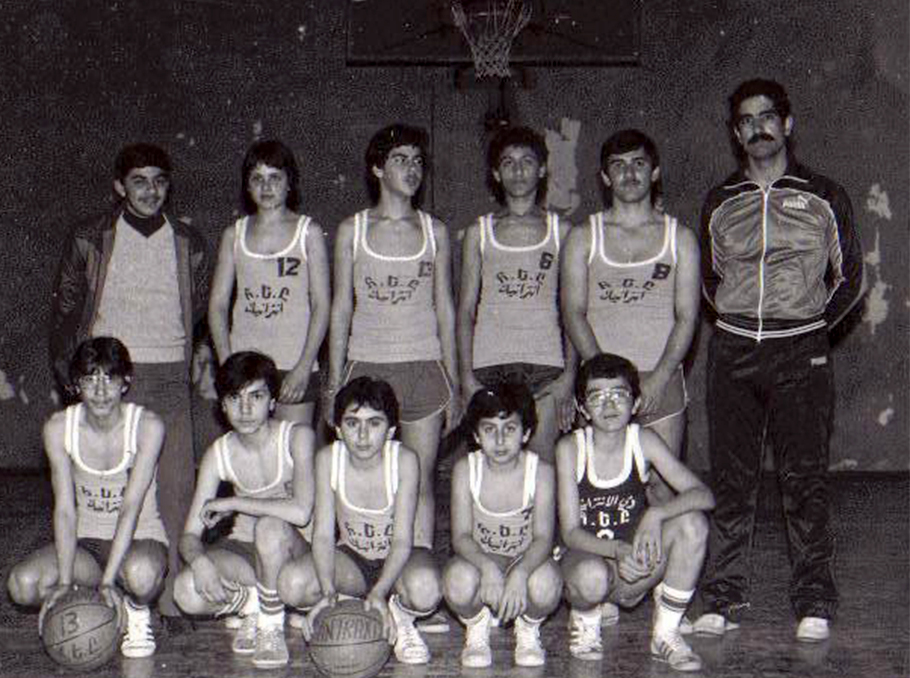
Photo: from Ardem Patapoutian’s archive
“I had three havens of childhood I remember with fondness: my sports club where I played basketball (not well, see height above) and table tennis (local champ!), our trips to the Mediterranean Sea and the wooded mountains surrounding Beirut, and the beautiful campus of the American University of Beirut, where I attended one year of undergraduate classes as a pre-med major. However, the conflict continued to escalate, and one fateful and terrifying morning, I was captured and held by armed militants. A few months later, I moved to Los Angeles,”Ardem told in his article for the Kavli Prize.
Ardem was one of the smart guys in our class, he was understanding very quickly and was interested in science. We were both admitted to the American University of Beirut, which was the best university in the whole Middle East. Ardem was studying chemistry there, his goal was to become a doctor. The beginning of the first year of the university was a paradise, but after a few months we had very difficult days, the war resumed, the professors and many of our friends were kidnapped, died, and during those difficult days Ardem left Beirut. He lived in Beirut for 11 years in war conditions, and in 1986 left for California.
Meetings years later
We did not meet for years, but our connection remained. Then there was an opportunity to meet several times. Everyone learnt about the Nobel Prize, but before that he won other prizes of the same weight as that prize, and on the occasion of one of them we met in Bilbao two weeks ago and spent a good time.
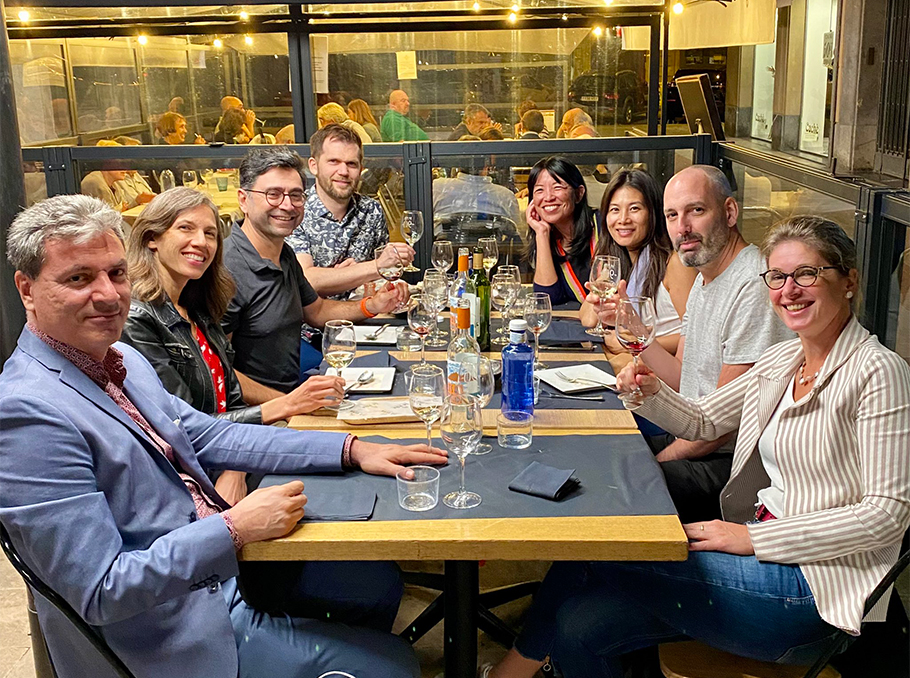 Ardem Patapoutian and friends in Bilbao
Ardem Patapoutian and friends in Bilbao Photo: from Ardem Patapoutian’s archive
It is one thing to be 18 years old, and another thing to be 40, a person is two different personalities in those two ages. We had to re-establish our relations, to understand who Ardem is today and who Vicken is. During the first meeting, there was a distance between us and a gap of more than 20 years that we had to cross and rebuild our friendship. It happened not only on the individual level, but also on the family level, we spent holidays with our families several times.
A few months before the COVID-19 epidemic, we, a group of 5 friends, met in Switzerland at my place, and again we became the teenagers we used to meet and spend time joking and laughing.
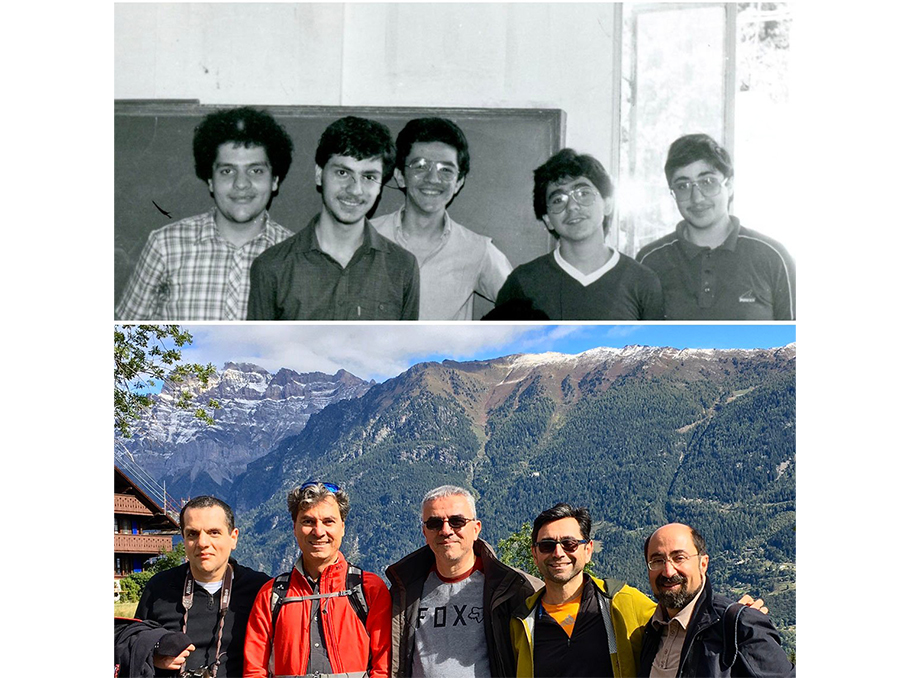
Photo: from Ardem Patapoutian’s archive
"Then (1983) and now... Reunion with my 10th grade classmates of the Armenian School in Beirut. It is wonderful to unite after 36 years," Ardem Pataputyan wrote next to the photo published on his Twitter page.
Twice in Armenia, a pioneer camp participant and scientist
Ardem was in Armenia twice, first time during the Soviet years, there was a program when Soviet Armenia was bringing Diaspora children to a pioneer camp and they were spending a few weeks with the children here. I came to Armenia a year before Ardem, to the same camp. For the children of Beirut, coming to Armenia for a few weeks during the war was like paradise.
His second visit to Armenia, I guess, was four years ago. He came for a week and gave several lectures in Armenia. His impressions were the same, he was happy to visit Armenia. At the same time, he saw how far science in Armenia is from today’s reality. On one hand, the impressions were positive, on the other, negative, seeing the gap between modern science and Armenian science.
Why aren’t the people in Armenia interested in people like Ardem before they receive the Nobel Prize? We have such specialists in the Diaspora, and they are ready to support Armenia’s science.
Marie Tarian









